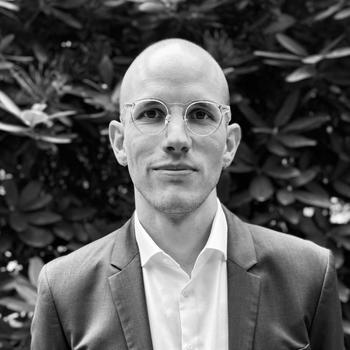Yannic Vitz
Undergraduate studies in Philosophy/Social and Economic History at Georg-August
University Göttingen and Universidad Complutense de Madrid (BA 2017). Graduate studies
in Philosophy and Public Policy at the London School of Economics and Political Science
(MSc 2019). Further graduate studies in Philosophy at Humboldt University Berlin (MA
2021), funded by the Deutschlandstipendium.
Professional and voluntary work with foundations, private companies, and public institutions.
From October 2021 to 2024, doctoral research fellow at the Institute of Philosophy, Free
University Berlin, and member of the DFG-funded Research Training Group 2638
Normativity, Critique, Change. Visiting Fellow at the Department of Government, Harvard
University (Spring 2023, Fall 2024, Spring 2025), and teaching at Harvard College in the
2024/25 academic year as a Teaching Fellow for the courses Justice (Michael Sandel) and
What is a Republic? (Daniel Carpenter).
PhD submitted in August 2024 and defended in January 2025. The doctoral project
Meritocracy and Moral Inequality was supervised by Stefan Gosepath (FU) and Thomas
Schmidt (HU).
Meritocracy and Moral Inequality
My doctoral research asks whether inequalities can truly be deserved—a core claim of
meritocracy. I analyze the philosophical principle of “desert” or “merit” and its role in shaping
how we reward effort and contribution, how we hold people responsible for success and
failure, and how the very idea of “deserving” connects to the notion of fittingness.
I show that meritocratic thinking often assumes that people differ in their moral worth—and
that advantages and disadvantages should reflect this worth. This transforms economic
differences into judgments about character and value, lending moral legitimacy to social
hierarchies.
The central conclusion: we can recognize the value of effort and contribution without turning
them into measures of a person’s worth. When merit moralizes inequality, it deepens
divisions and distorts our sense of justice. That is why merit, as a justification for inequality,
should be rejected.
Publications
- Meritocracy and Moral Inequality (under contract at De Gruyter Brill), PhD publication
- Vitz, Yannic (2021): “Applaus, Applaus! Über eine Ethik des Lobes und moralisch unangemessenen Applaus,“ in Romy Jaster & Geert Keil (ed.), Nachdenken über Corona, Stuttgart: Reclam, p. 121-132.
- Vitz, Yannic (2019): “'Having Too Much' and Libertarian Freedom” Rerum Causae, 11 (1), pp. 57–69. [https://rc.lse.ac.uk/articles/abstract/167/]
Talks
- "Are Deserved Inequalities Moralizing?" presented at the Workshop On the Concept of Desert at the Center for Ethics and Philosophy in Practice (ZEPP) at LMU, Munich, January 22, 2025.
- “What is Economic Desert?” presented at the Society for Analytic Philosophy’s (GAP) Workshop for First Generation Academics, Berlin, April 25, 2024.
- “The Axiology of Desert,” presented at the 5th Workshop for Political Philosophy, Düsseldorf, May 26, 2023.
- “Applaus, Applaus! Über eine Ethik des Lobes und moralisch unangemessenen Applaus,“ Presented at the Research Colloquium, Chair of Philosophical Anthropology Geert Keil, Humboldt-University Berlin, Berlin, November 19, 2020.
- “Applaus und Covid 19,” Presented at the Research Colloquium, Chair of Practical Philosophy Kirsten Meyer, Humboldt-University Berlin, Berlin, July 13, 2020.
- “Realising Luck Egalitarianism,” Presented at the Research Colloquium, Chair of Practical Philosophy Kirsten Meyer, Humboldt-University Berlin, Berlin, November 25, 2019.
- “Realising Luck Egalitarianism: Risk, Open Counterfactuals, and Community,” Presented at the 6th Student Philosophy Conference [Bundesfachschaftentagung], Düsseldorf, September 20, 2019.
- “’Having Too Much’ and Libertarian Freedom,” Presented at the 7th LSE-Bayreuth Student Philosophy Conference, London, May 2, 2019.





